January 4, 2013 by Greg Noe
Predictions are back! After this exhausting 2012 Game of the Year week, let's settle into something a little more fun. 2013 could be a huge year for the gaming industry: a new PlayStation and Xbox are likely, the Wii U is just getting off the ground, and the fabled Steam Box could become a reality. Bask in our probably terrible predictions on release dates, exclusive games, and even price of new systems!
There's no science to any of this, and if you have your own predictions feel free to post them in the comments. Depending on how right or wrong we are we may revisit our foresights at the end of 2013, it could be entertaining.
Read moreAugust 1, 2012 by Tyler Smith
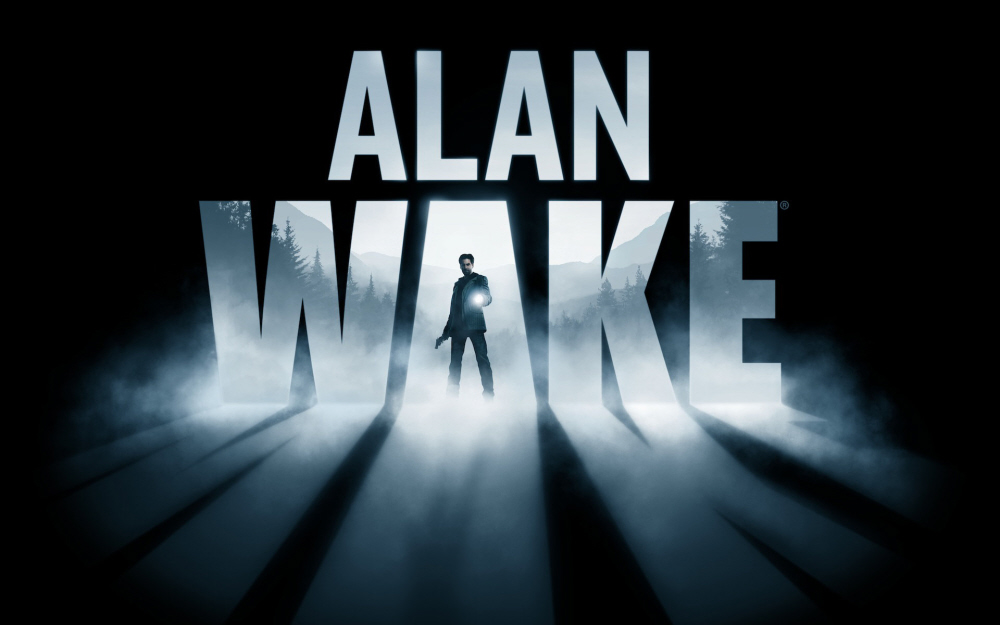 As we stand on the precipice of a new console generation, the old argument begins to show its ugly head: “We don’t need a new console generation yet,” or “the console is holding back the PC.” In this generation, more than any other I remember, the argument is loud and salient. Traditionally you had hard-core PC gamers on one side stating that consoles were lagging behind, and the hard-core console lovers on the other asserting that the current generation was still producing quality games. The reality, of course, is that developers always want more to work with, but they also need to be profitable. This, of course, doesn’t mean that all of them are going to push it to the maximum, but more horse-power gives the developer the freedom to choose how they use it as opposed to spending their time and money eking out every last drop of performance available (see: XBLA/PSN releases).
As we stand on the precipice of a new console generation, the old argument begins to show its ugly head: “We don’t need a new console generation yet,” or “the console is holding back the PC.” In this generation, more than any other I remember, the argument is loud and salient. Traditionally you had hard-core PC gamers on one side stating that consoles were lagging behind, and the hard-core console lovers on the other asserting that the current generation was still producing quality games. The reality, of course, is that developers always want more to work with, but they also need to be profitable. This, of course, doesn’t mean that all of them are going to push it to the maximum, but more horse-power gives the developer the freedom to choose how they use it as opposed to spending their time and money eking out every last drop of performance available (see: XBLA/PSN releases).
May 11, 2012 by Greg Noe
 Both Microsoft and Sony have tested the waters on not allowing used games on their next generation consoles. Whether it’s right or not, Gamestop has been blamed by developers and publishers for ruining the industry with their aggressive used game sales tactics, and as a potential preventive measure, used games may soon be a thing of the past.
Both Microsoft and Sony have tested the waters on not allowing used games on their next generation consoles. Whether it’s right or not, Gamestop has been blamed by developers and publishers for ruining the industry with their aggressive used game sales tactics, and as a potential preventive measure, used games may soon be a thing of the past.
And I say, let them do it! Pick the nuclear option! Block used games from running on your console. I don’t say this as a former THQ executive trying to protect my bonus, or even as a lowly developer simply trying to protect my job. I say it as a consumer of the gaming industry who thinks there might actually be a huge benefit to gamers if this is pulled off correctly. I just don’t think it will be pulled off correctly.
Read moreDecember 13, 2011 by Greg Noe
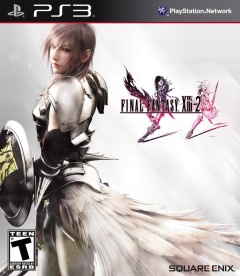 We last checked in with Famitsu, the premier video game magazine in Japan, in April 2010, right after they had awarded Metal Gear Solid: Peace Walker a perfect score. It was Famitsu's 14th perfect score in their 20+ year history, but what really caught my eye was that half of them (7 at the time) had been given out in just three short years! Something had changed at Famitsu as it seems to difficult to imagine that there are that many more perfect games per year (even if the individual reviewer doesn't consider a 10 perfect, they're still handing out the score relative to everything else released).
We last checked in with Famitsu, the premier video game magazine in Japan, in April 2010, right after they had awarded Metal Gear Solid: Peace Walker a perfect score. It was Famitsu's 14th perfect score in their 20+ year history, but what really caught my eye was that half of them (7 at the time) had been given out in just three short years! Something had changed at Famitsu as it seems to difficult to imagine that there are that many more perfect games per year (even if the individual reviewer doesn't consider a 10 perfect, they're still handing out the score relative to everything else released).
And while I was hoping this wouldn't become an annual event, in the 20 mere months since my article we add four more games to Famitsu's perfect score list: Pokemon Black and White, The Legend of Zelda: Skyward Sword, The Elder Scrolls V: Skyrim, and Final Fantasy XIII-2. I'll be honest and admit the inclusion of this particular Final Fantasy game spurred me to write this update.
For the unaware, Famitsu assigns four reviewers to major titles, with each reviewer giving a score out of 10. A perfect score would be 40 out of 40 points totaled across four reviews. The first 40/40 review was The Legend of Zelda: Ocarina of Time in 1998, presented 12 years after the magazine's first issue. Let's have a quick word about the four new titles and update our graph.
Read moreMarch 25, 2011 by Paul Abbamondi
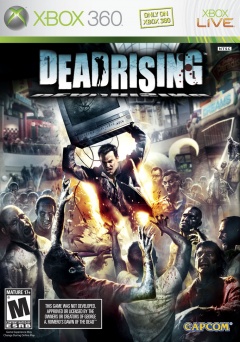 If there’s one new videogame fad I absolutely hate more than 3D anything, it has to be tiny text. I'm not sure what specifics need to be required to obtain tiny text status, but they most likely sit somewhere between squinting and extreme squinting. Over the years, text in videogames has gotten smaller and smaller, and I'm not exactly sure why. If you look back at screenshots of, say, SNES games, you'll see the font used is generally huge and spaced far apart, almost taking up one-third of the game's screen.
If there’s one new videogame fad I absolutely hate more than 3D anything, it has to be tiny text. I'm not sure what specifics need to be required to obtain tiny text status, but they most likely sit somewhere between squinting and extreme squinting. Over the years, text in videogames has gotten smaller and smaller, and I'm not exactly sure why. If you look back at screenshots of, say, SNES games, you'll see the font used is generally huge and spaced far apart, almost taking up one-third of the game's screen.
No mistaking what that fly is saying in Breath of Fire, that's for sure. This font size guarantees readability. Some might say this is a little too big. However, compare this font size with that of any modern game, and it's clear which gaming generation pandered to the literate more. Either way, this is a problem, and while not every videogame suffers from it, many big name titles shockingly do.
Read moreDecember 29, 2010 by Greg Noe
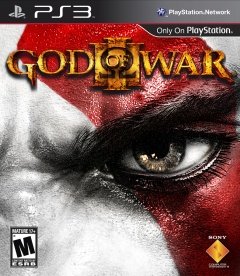 On the first of the year, the writers here presented their predictions for 2010 in the video game industry. It was our first attempt at anything like this, and since we're primarily gamers first, writers second, and industry experts in a distant last, this was definitely more of an exercise in fun forecasting than put-your-money-down-now predictions.
On the first of the year, the writers here presented their predictions for 2010 in the video game industry. It was our first attempt at anything like this, and since we're primarily gamers first, writers second, and industry experts in a distant last, this was definitely more of an exercise in fun forecasting than put-your-money-down-now predictions.
Well, we can't let bad predictions go forgotten and made fun of, so here we are again. We'll quickly cover what went randomly right and what went horribly wrong, but then we'll be back again on Friday for our fourth annual Game of the Year Awards.
Read moreJuly 28, 2010 by Greg Noe
 This is a new series of articles I originally planned to cram all in one, but it's much easier to complain one at a time, unleashing my disgust for one popular game all at once. I will admit this is intended to be a bit flamebaitish, but I hope it brings in some comments!
This is a new series of articles I originally planned to cram all in one, but it's much easier to complain one at a time, unleashing my disgust for one popular game all at once. I will admit this is intended to be a bit flamebaitish, but I hope it brings in some comments!
Spore is back in the news after the completely uninspired named Darkspore was announced as some sort of multiplayer action title. I really don't know anything about the new game, but it did remind me how much I loathed my original Spore experience.
I could go on again about how Spore was one of my most anticipated games ever and how much it let me down, but I'd rather talk about what appears to be my disconnect from the rest of the video game review industry. The game has a Metacritic score of 8.4 aggregated from 75 reviews while I gave Spore a 5 out of 10. Two reviewers gave it a perfect score (including my personal much-hated G4TV) and there were only five sites that gave it a score under 70 (including Destructoid which I seem to line up with more often than not). Spore was an uber-hyped, blockbuster game published by Electronic Arts and devised by the mastermind of Will Wright; were reviewers afraid to trash the game or did they honestly like it? And if they liked it... what happened to me?
Read moreJuly 9, 2010 by Steve
Few things in the gaming world are as controvertial as game reviews themselves. Fanboys and fangirls wait with bated breath to peek at the scores for their most anticipated games. If these scores aren't as high as their expectations, some of them are apt to explode, whether at writers, publishers, comment boxes, or at developers themselves. Unfortunately, what would seem to be a simple subjective scoring has now turned into an important industry, as the likelyhood of developers and publishers could be impacted by such things. Thus we have our current situation, where games are often reviewed as exacting and objectively as possible. However, does this even remotely mirror the experience of the end user and help the customer in deciding how to spend their money? I argue that this is fundamentally flawed and that we can find a better way, both for the developers and the consumers.
Read moreJuly 8, 2010 by Greg Noe
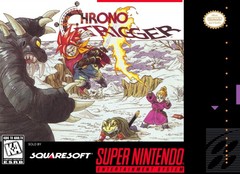 Obsidian Entertainment recently mentioned that they would like to remake Chrono Trigger into a Western-style console role-playing game and the gaming world went, "huh?" I personally like the idea, while the usual haters are going to hate, but this actually has a small chance in happening since Square Enix recently recruited Obsidian to work on the Dungeon Siege IP Square picked up recently. So the companies have a relationship, anything could happen now.
Obsidian Entertainment recently mentioned that they would like to remake Chrono Trigger into a Western-style console role-playing game and the gaming world went, "huh?" I personally like the idea, while the usual haters are going to hate, but this actually has a small chance in happening since Square Enix recently recruited Obsidian to work on the Dungeon Siege IP Square picked up recently. So the companies have a relationship, anything could happen now.
As a gigantic fan of Chrono Trigger, the idea of a remake honestly doesn't bother me. Any Chrono game at this point is better than no more Chrono games. Square Enix has shown over and over again that they will never come back to the series in any serious form, so why not contract it out to a studio that is actually interested (and experienced in picking up old IPs, if somewhat lousy at it sometimes)? Chrono Trigger on the Super Nintendo and its ports to the PS1 and DS sold over 3 million copies, but sales outside of Japan have always lagged, why not take one of the best games ever and adapt it to a new audience? There's definitely potential.
Read moreJune 30, 2010 by Grant
 Fanboy is a column about gaming what-ifs, hopes, dreams, and the inevitable realization that we will probably never get what we want. But it’s always fun to speculate!
Fanboy is a column about gaming what-ifs, hopes, dreams, and the inevitable realization that we will probably never get what we want. But it’s always fun to speculate!
In April, Capcom shocked the world by announcing the sequel we all wanted but never thought we’d see: Marvel vs. Capcom 3. The Vs. Capcom series is always filled with surprises: another recent one is releasing Tatsunoko vs. Capcom in the America, which many thought would be a licensing nightmare. Capcom has crossed paths and punches with four companies: comic book titan Marvel, legendary Japanese animation studio Tatsunoko, fighting game rival SNK, and even Namco in a Japanese-only RPG. But what other companies should Capcom square off against? Here are five that I’d like to see. Keep in mind, I hope for all of these to be fighting games (sorry Namco x Capcom).
Read moreJune 25, 2010 by Ian M. Bagley
 What comes to your mind when I say "Dungeons and Dragons?" Twenty-sided dice? 2d6? Attack of opportunity? Fortitude save? Gary Gygax? Figurines? Yes, these all come to mind to those who have never even played the board game that changed the world.
What comes to your mind when I say "Dungeons and Dragons?" Twenty-sided dice? 2d6? Attack of opportunity? Fortitude save? Gary Gygax? Figurines? Yes, these all come to mind to those who have never even played the board game that changed the world.
You might be wondering why, on a video game review site, I am writing about Dungeons and Dragons. Well, to many gamers, it is a bit more obvious. "I've played Star Wars: Knights of the Old Republic, I know about dungeons and dragons!" and that is true, you do.
What I am afraid people don't understand is that while Bioware has certainly helped establish Dungeons and Dragons rules into video games, it goes much farther than that.
Read moreJune 21, 2010 by Nate
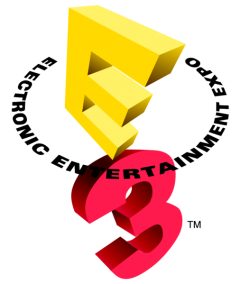 Like scampering down the stairs on Christmas morning, the excited search for a steady video feed before E3 conferences is filled with anticipation. The annual summer happening is one of the few times on the gaming industry's calendar when we can look forward to some surprise delights from the many publishers playing the role of Santa Claus in business suits. Simply put, it's the industry's biggest event in the year.
Like scampering down the stairs on Christmas morning, the excited search for a steady video feed before E3 conferences is filled with anticipation. The annual summer happening is one of the few times on the gaming industry's calendar when we can look forward to some surprise delights from the many publishers playing the role of Santa Claus in business suits. Simply put, it's the industry's biggest event in the year.
As such, the editors of The First Hour tried to guess what unexpected pleasures would manifest at the event. Some were sure bets, like Microsoft showing off Halo: Reach. Others were more risky, like F-Zero hitting the 3DS at launch. And some were planted firmly outside the realm of possibility, with Shenmue 3 topping that list as always.
When all was said and done, The First Hour hit a few out of the park...but mostly struck out.
Read moreJune 18, 2010 by Greg Noe
 After Nate’s excellent and complete wrap-up of the five big conferences, I’m going to cover some of the games that caught my attention over the last few days. While we knew the existence of some of these games before this week, our knowledge of them was pretty thin. Hopefully you’ll be seeing these games on the First Hour in the coming year (and hopefully we’ll recommend you keep playing them!).
After Nate’s excellent and complete wrap-up of the five big conferences, I’m going to cover some of the games that caught my attention over the last few days. While we knew the existence of some of these games before this week, our knowledge of them was pretty thin. Hopefully you’ll be seeing these games on the First Hour in the coming year (and hopefully we’ll recommend you keep playing them!).
This list is nowhere near complete, neither as a list of great E3 2010 games or even with games I was impressed with. Hope you enjoyed the show, I sure did.
Read moreJune 16, 2010 by Nate
 The question at the beginning of E3 always seems to be, "Who's going to win this year?" The gaming community eagerly watches the big press conferences for showstopping announcements and game demonstrations, looking to see which company will have the edge for the next twelve months. E3 2010 featured five big press conferences in its first two days: Microsoft, EA, and Ubisoft on Monday, and Nintendo and Sony on Tuesday. So much has happened in the past 48 hours that I think it's important to take a moment and recap each company's showing. I've definitely missed a few announcements and details in this quick-and-dirty summary, but I think I hit all the major points.
The question at the beginning of E3 always seems to be, "Who's going to win this year?" The gaming community eagerly watches the big press conferences for showstopping announcements and game demonstrations, looking to see which company will have the edge for the next twelve months. E3 2010 featured five big press conferences in its first two days: Microsoft, EA, and Ubisoft on Monday, and Nintendo and Sony on Tuesday. So much has happened in the past 48 hours that I think it's important to take a moment and recap each company's showing. I've definitely missed a few announcements and details in this quick-and-dirty summary, but I think I hit all the major points.
June 11, 2010 by Greg Noe
 With E3 2010 set to kick off next week, we thought it was fine time at the First Hour to make some predictions! Most of these might be more wishful thinking than realistic expectations, but this is the only time of year where gamers are actually surprised, so we're going to make the most of it.
With E3 2010 set to kick off next week, we thought it was fine time at the First Hour to make some predictions! Most of these might be more wishful thinking than realistic expectations, but this is the only time of year where gamers are actually surprised, so we're going to make the most of it.
You'll find predictions from Greg, Grant, Steve, Paul E., Paul A, Ian, Nate, and Mike in Omaha below on topics ranging from Natal to Sega releasing another console and everything in between. Predictions are guaranteed to be totally inaccurate, but we had fun putting them together and imaging the possibilities.
We hope to sum up our thoughts about the conferences and games announced next week every few days, but we'll definitely have a recap when it's over determining who was the most accurate. The First Hour doesn't really do news that often, but we'll try not to interrupt our daily reviews and editorials that much. Either way, we've got a whole slew of content queued up.
Enjoy!
Read moreApril 22, 2010 by Greg Noe
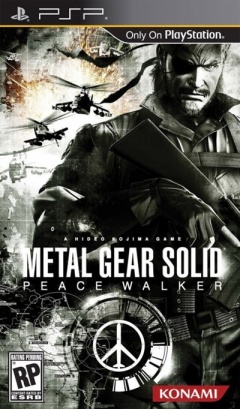 Over the last 24 years, popular Japanese gaming magazine Famitsu has awarded 14 perfect scores. For Famitsu magazine, a game review's final score is actually two to four total scores assigned by a collection of reviewers. Technically, there's no such thing as a 40/40 score, but four 10/10's. But gamers love numbers, and we love comparing one game's numbers to another game's numbers, so the 40/40 perfect score list is a great way for fanboys to scoff or gyrate in anticipation.
Over the last 24 years, popular Japanese gaming magazine Famitsu has awarded 14 perfect scores. For Famitsu magazine, a game review's final score is actually two to four total scores assigned by a collection of reviewers. Technically, there's no such thing as a 40/40 score, but four 10/10's. But gamers love numbers, and we love comparing one game's numbers to another game's numbers, so the 40/40 perfect score list is a great way for fanboys to scoff or gyrate in anticipation.
Outside of the country, Famitsu is the ultimate barometer of what Japan thinks of a particular game. Famitsu scores are thrown about in headlines and rattled around in forum discussions, but you almost never hear why a score was awarded one number instead of the next. This is undoubtedly because of the language barrier between Japan and the rest of the world, but also because numbers are easy for everyone to understand and the fact that Famitsu editors give their reviewers about 100 characters to explain what they thought about a game.
While I'm not personally a big fan of a game review's score (I'd much rather read the why and how), the Famitsu perfect score list is an intriguing specimen. The eighth game in two years just garnered the spotlight: Metal Gear Solid: Peace Walker, but let's start at the beginning.
Read moreJanuary 22, 2010 by Greg Noe, Mike in Omaha, Paul Eastwood
This is the first of a few roundtable debates planned covering the last decade of video games spanning 2000 through 2009. For today, three of the writers at the First Hour gave their opinion on what the best Legend of Zelda game of the decade was. This was not simple, considering there were three major console iterations along with many portables games, released across five systems. Here are Greg, Mike, and Paul's picks for the best Zelda game of the decade, ordered by their release.January 1, 2010 by Greg Noe
Going to try something new this year, we're going to make some completely wild predictions that may have little base in reality. I think they're pretty self-explanatory, and hopefully at the end of the year I'll remember we did this and we can have a good laugh at how wrong we were (or be shocked at how right).August 24, 2009 by Greg Noe
I recently finished a great fantasy book that is just ripe for turning into a video game. I actually began writing a short review about Mistborn: The Final Empire by Brandon Sanderson, but it quickly turned into an examination on book and movie based games and how they're designed. I quickly determined that there are two common methods of taking the original source and putting it into a gamers' hands, and I pretty much just threw the rest of the review away at that point (I hope to get around to it someday, this site does have book reviews for a reason). For better or worse, here's my examination of the two design mechanisms chosen when creating a game from an existing franchise. There are many factors that come into play when deciding between them, and honestly I think they often make or break the game.
Read more